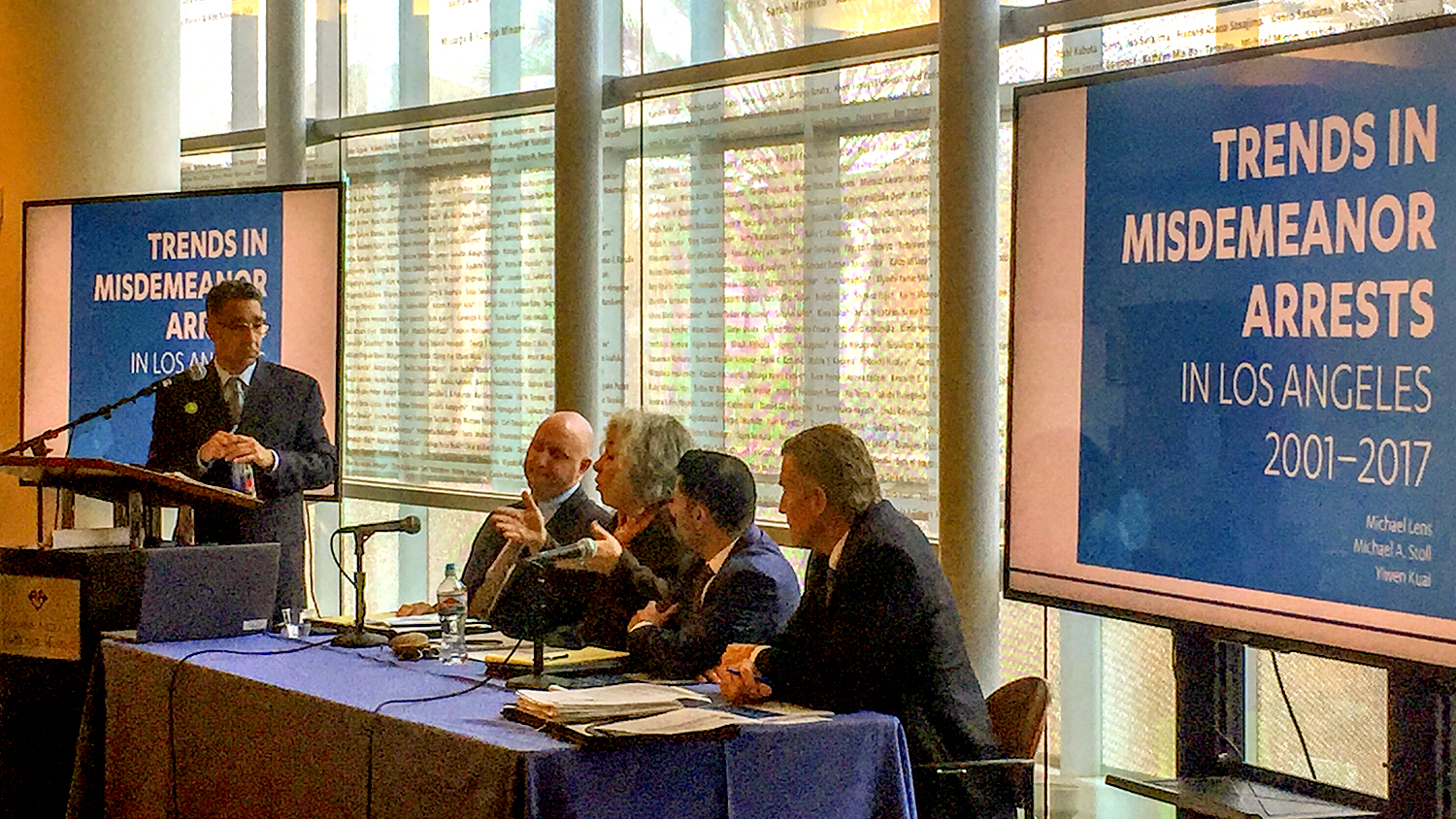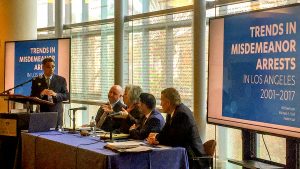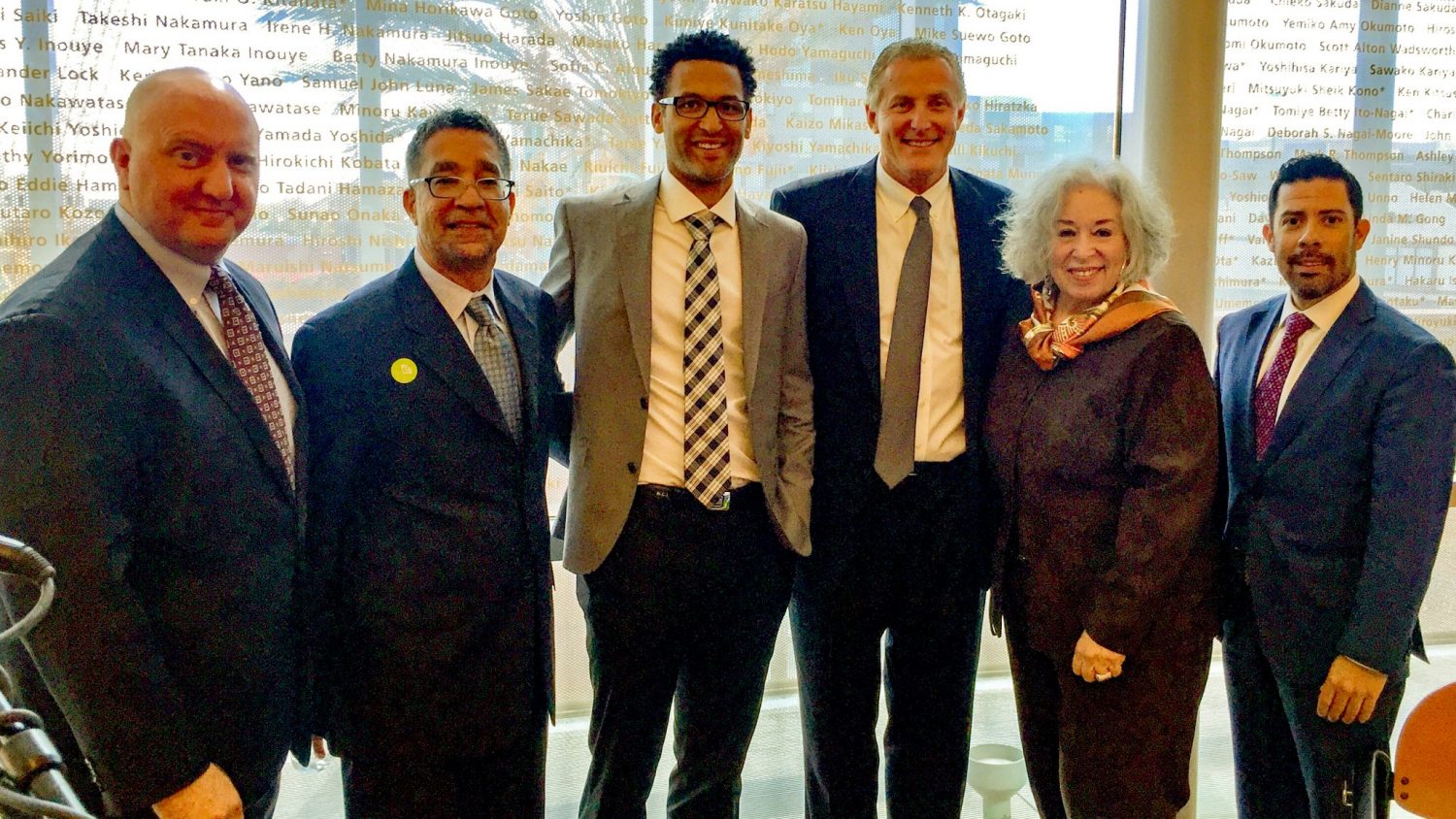Mark A.R. Kleiman, emeritus professor of public policy at the UCLA Luskin School of Public Affairs and one the United States’ pre-eminent experts on drug and crime policy, died July 21 after a long illness. He was 68.
Kleiman’s long list of publications includes his most recent co-authored books, “Marijuana Legalization: What Everyone Needs to Know” (Oxford University Press, 2012) and “Drugs and Drug Policy: What Everyone Needs to Know” (Oxford, 2011), as well as “When Brute Force Fails: How to Have Less Crime and Less Punishment” (Princeton University Press, 2009).
He also worked at the United States Department of Justice, serving as director of the Office of Policy and Management Analysis, Criminal Division, and as the associate director for Drug Enforcement Programs. And he held posts as deputy director for management and director of program analysis for the city of Boston.
“Mark was a rare breed in academia, a truly Renaissance mind,” said Mark Peterson, professor of public policy in the UCLA Luskin School and one of Kleiman’s colleagues. “I quickly realized that he was both the smartest person in the building and among the funniest, with a quick wit that often required educational sophistication to fully grasp.”
Peterson added: “I can say that his network was simply enormous, encompassing friends, colleagues, mentees and protégés, graduate and undergraduate students, media figures, state and federal policymakers, all of whom he helped, he informed, he guided, and he just simply cared about.”
Kleiman also authored numerous journal articles, book chapters, technical reports and policy memos, as well providing articles and commentary for news media and book reviews and for professional publications. He served as editor of the Journal of Drug Policy Analysis and was a referee for numerous professional policy journals. He also was an active blogger on “The Reality-Based Community,” focusing on public policy analysis of the criminal justice system, substance abuse, and drug policy in the United States and abroad.
Kleiman, who was born in Phoenix and grew up in Baltimore, graduated magna cum laude in political science, philosophy and economics from Haverford College. He earned his master’s in public policy and doctorate in public policy at Harvard.
He came to UCLA in 1996 shortly after the founding of the graduate program in public policy in what was then known as the UCLA School of Public Policy and Social Research. He served on the faculty of the Luskin School until retiring in 2015. He later joined the faculty of New York University, where he was affiliated with NYU’s Wagner School and served as director of the crime and justice program at NYU’s Marron Institute of Urban Management.
Prior to UCLA, Kleiman held academic posts at Harvard University’s John F. Kennedy School of Government, and at the University of Rochester. He also served stints as a visiting professor at the Batten School of Leadership and Policy at the University of Virginia, Harvard Law School, and the University of Maryland’s School of Public Policy. He was a visiting fellow at the National Institute of Justice.
In addition, Kleiman served on the National Research Council as a member of the Committee on Law and Justice, and he was chairman of the board of the Los Angeles-based Botec Analysis Corporation, a research and consulting firm that develops solutions to issues in public policy in the areas of crime, justice and drug policy.
“Mark leaves behind a legacy — us,” said former student Brad Rowe, who earned his master’s in public policy in 2013, and who later worked closely with Kleiman. “He was a teacher first and foremost.”
Rowe said that Kleiman was a demanding instructor, but “he could always make you laugh with his ready-made arsenal of anecdotes.”
Rowe, who now teaches a public policy course at UCLA Luskin and serves as the school’s intellectual successor to Kleiman on drug policy, continued, “And, wow, I’ve rarely met someone who so loved seeing justice done.”
UCLA was the launching point and incubator for many of Kleiman’s ideas, Rowe recalled. “It was a safe haven where he valued the commitment this group has for thought and action rooted in truth, equality, dignity and public safety.”
Albert Carnesale, UCLA chancellor emeritus and professor emeritus of public policy and mechanical and aerospace engineering, first met his future colleague during Kleiman’s time as a doctoral student at Harvard.
“In addition to being an extraordinary fount of original ideas, deep insights, and rigorous and revealing analyses, he was a devoted mentor to generations of students, a valuable colleague, a caring friend, and a compassionate and effective advocate for fairness and justice,” Carnesale wrote in an email after learning of Kleiman’s death.
Former student Jaime Nack, the president of Three Squares Inc. and who graduated with a master’s in public policy in 2002, wrote: “Mark Kleiman was an amazing professor … He truly cared that we mastered the material. He knew it would serve us in life and in our careers.”
No services are planned. He is survived by a sister, Kelly Kleiman, who posted on social media: “If you are moved to honor him, please donate to the NYU Transplant Institute, the ACLU, or any Democratic candidate.”




